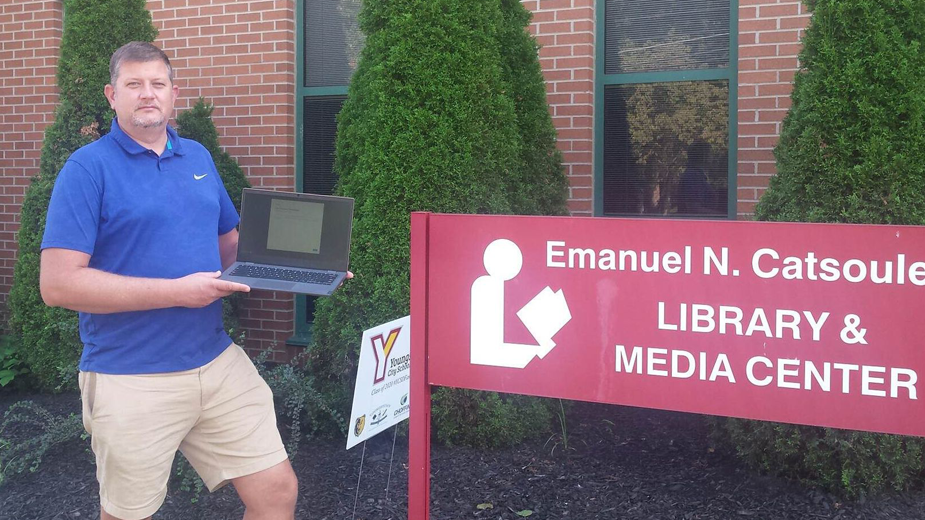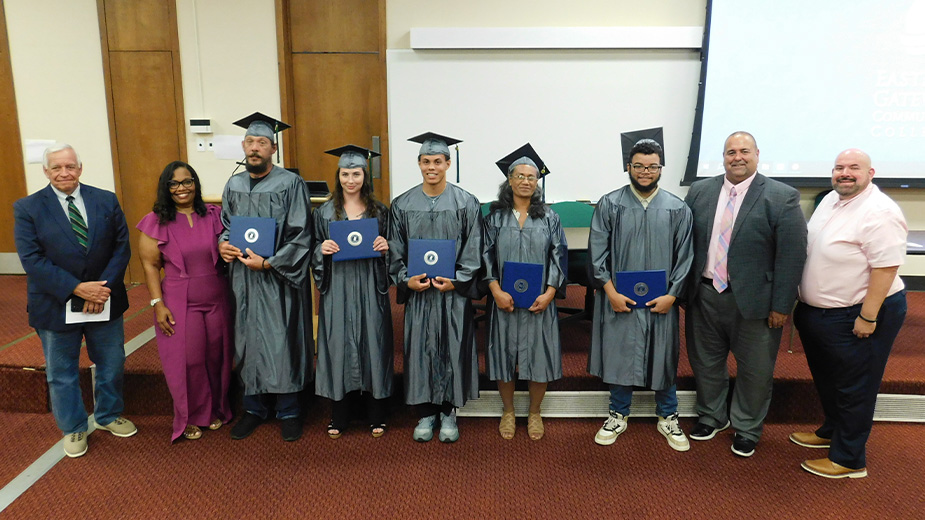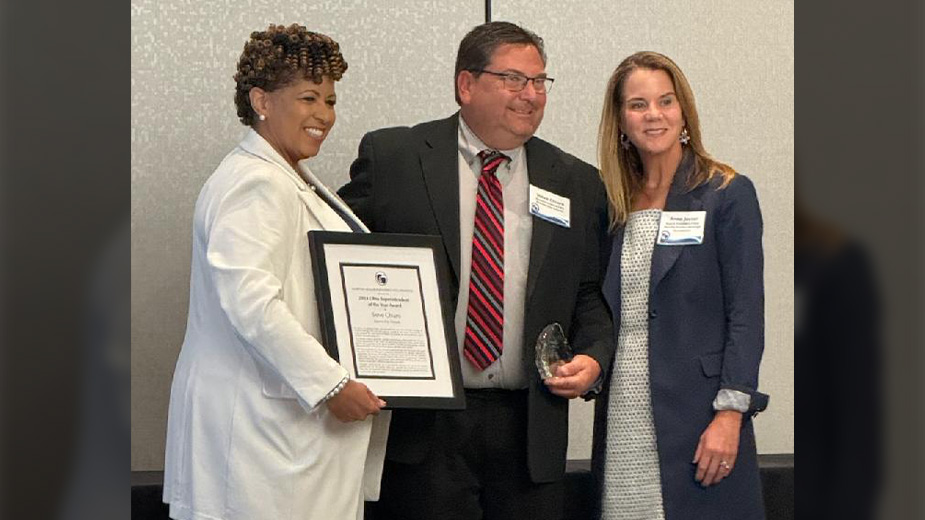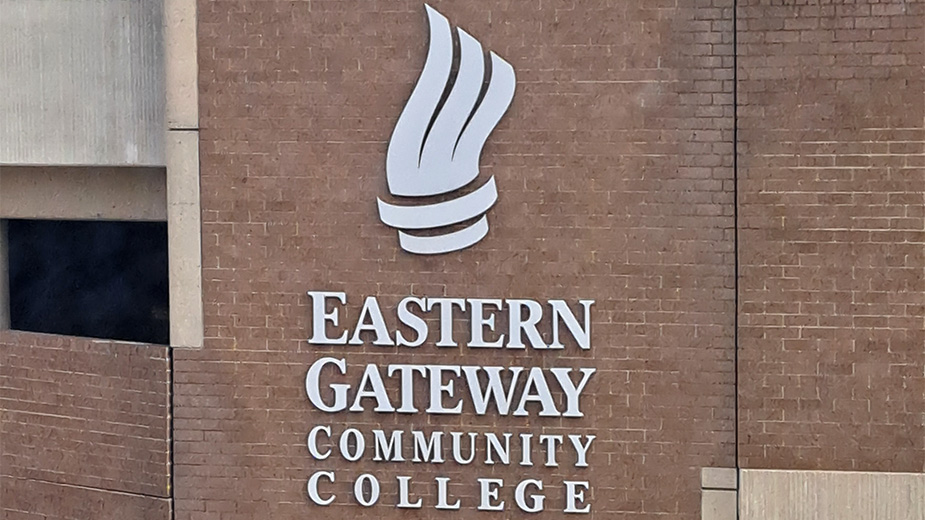Youngstown’s All-Digital School Year Helps Bridge Digital Divide
YOUNGSTOWN, Ohio – On the second day of Youngstown City School District’s all-remote school year, there were still a few families who hadn’t picked up the laptops and tablets the district has made available to them for free.
Chaney High School Principal Rob Kearns said, though, the vast majority of students have. He estimated 90% of students at his school had their Chromebooks already and got through the first day – September 8 – with limited hiccups.
“We were excited that we had a very high attendance rate. We weren’t missing many kids. The ones who had trouble weren’t afraid to call in and ask for help,” he said Wednesday at the fourth and final day where families could pick up their free devices. “We were able to walk them through it step by step. We felt pretty good about all of it.”
But the program extends beyond just giving students laptops. When they stop by a school, parents are also given information about how to log in, the Parent ProgressBook so parents and students alike can check grades and assignments, and details in the school district’s food distributions.
For families that didn’t stop by, work will be done to make sure students have what they need, whether it’s confirming the household already has internet-connected devices or delivering the district’s laptops straight to homes, Kearns said.
While virtually all of Youngstown has the ability to connect to the internet from home – a Connect Ohio report from March shows all but a few areas of the city, mostly industrial, have minimum internet speeds – having the devices needed to do so aren’t as readily available for all.
In a 2016 interview with The Business Journal, Stu Johnson, then the executive director of the internet access advocacy group, said that in urban areas, the barrier to access is often cost, rather than availability.
“The access is there, but many people don’t have $40 a month to pay for it,” he said four years ago. In the midst of a pandemic that has seen historic highs for unemployment, that money isn’t easier to come by.
Part of Youngstown City Schools’ effort to provide students with the tools for remote learning also include providing a free year of internet access via Spectrum. The district paid for the internet access effort through funding from the Cares Act passed at the end of March.
On Wednesday morning, Katrina Hunter, a parent whose two children attend Chaney, called the district’s providing of Chromebooks a blessing.
“There are a lot of people out of work. Some people can’t afford these devices,” she said. “For the school to say, ‘We’re going to give you these devices,’ is truly a blessing. It saves us a lot of money at a time when a lot of people can’t afford it. I can’t complain at all.”
While she acknowledged there are challenges in having her kids learn remotely, she said doing so was the best option the school district could have chosen.
“In a way, it feels like they kind of forgot about working parents because it interrupts my work schedule with the time they’re supposed to be online,” she said. “But it’s better to be safe and healthy than anything else. It’s the best choice and we just have to go with what we have and prepare.”
Part of why the district has been able to make the move to remote learning so well – in the spring semester, after YCSD suspended in-person classes, Rayen Early College reported 99% attendance for online classes – was early preparation, said CEO Justin Jennings. The district announced July 2 that it would not return to in-person classes for the school year and remains the only district teaching entirely remotely.
“We know it’s not ideal. A lot of scholars don’t learn as well online. But we erred on the side of caution. We wanted to be successful and gave ourselves the time to do that,” he said. “If you’re ordering devices now, you’re probably not getting them until January.”
The purchase of Chromebooks, Macbooks and iPads was already in the works before the pandemic hit in mid-March, he continued, but was accelerated. When he came on board as CEO in December, one of his first plans was to have students throughout the school district work remotely on Fridays.
“We looked at platforms like Blackboard. Once they get to college, a lot of their learning and interaction with professors will be through things like that,” Jennings said. “We had started the planning to have one-to-one devices for all students. COVID gave us the resources with our Cares Act money to make that come to fruition.”
Between the school district’s announcement in early July and the start of the school year, work was done to ensure things went smoothly in a semester unlike any other. Teachers took part in weekly training sessions hosted by Youngstown Schools, the Mahoning County Education Service Center or education groups.
“We don’t want the computer to be the teacher. We want our teachers to be the teacher. This isn’t a new program, it’s the same instruction you’d get in school, it’s just coming through a computer,” Chaney’s Kearns said. “If they find a vaccine tomorrow and everything is perfect, this is still something our students need and can benefit from, even if we’re in brick-and-mortar school.”
Part of that benefit, he and Jennings said, is increased internet access, even if it’s currently only guaranteed for a year. In the coming weeks, the school district will host webinars for parents and guardians who are working with students while they learn from home.
“They can learn how to use Zoom or email or anything else they need to support their scholar. All of those skills translate to anything else you can do on the internet,” Kearns said. “The student may be the primary user, but now if we can get a parent more comfortable with using the internet, they can get on Indeed to look for jobs or post resumes. It could even be something like paying bills digitally, which ultimately ends up being cheaper and timesaver. This can help the entire family get access and become more computer literate.”
Even once in-person classes can resume and students once again roam the halls of Youngstown City Schools, the move to an all-digital school year will have a lasting impact on the learning environment for students, Jennings said.
“This move gets us through any calamity we could ever have. We won’t have more calamity days; there should be no such thing as a snow day any more,” he said. “Now we know that we’ve figured out learning online. It’s not ideal in all situations, but sometimes it can really help us out.”
Pictured: Chaney High School Principal Rob Kearns with one of the Chromebook laptops that will be provided to students. On the second day of classes, he estimated upward of 90% of students at his school had already picked up their laptops.
Copyright 2024 The Business Journal, Youngstown, Ohio.



